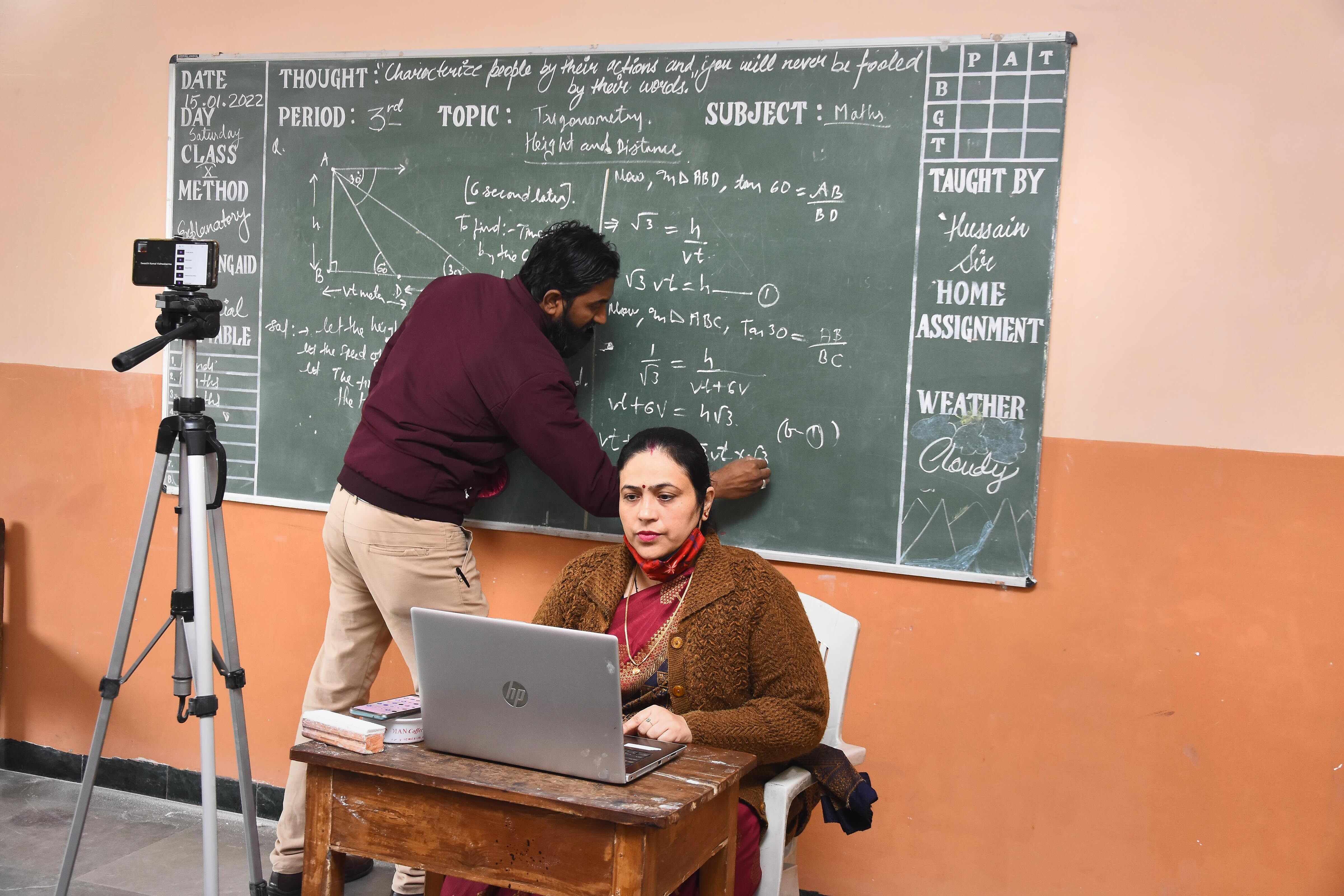No less a threat
Fallouts of prolonged school closure may far outweigh the negative impact of the pandemic on children — which the science says is limited

Covid-19 pandemic has wreaked havoc on almost every aspect of our life but the devastation it has caused to the education sector across the world is unparalleled. It has not only led to loss of learning opportunities for students but also resulted in mental health issues such as anxiety and depression among them. When the pandemic broke out between late 2019 and early 2020, it was prudent then to shut the schools down. At that point, nobody — not even the doctors — had the slightest idea as to how the virus was going to affect human beings, their mind and body. It was therefore safe and justified at that moment to lock everything down in a desperate manner in order to contain the virus, but after the passing of almost two years and witnessing several variants, one can say now that experts have gathered some knowledge around the virus. In order to save the education system, we can no longer afford to keep the children away from classrooms. We must formulate strategies in this regard.
Let's see what other countries are doing. In the UK, secondary schools are open with certain restrictions in place. Students and teachers are expected to wear masks and attend classes. In Italy, the government has categorically stated that its policy is to keep schools open even amidst the rising infection. In France also, the academic year has started in the first week of this month as scheduled. The French Prime minister has declared that closure of schools will be the government's last resort. World Health Organisation's Regional Director for Europe, Hans Kluge, predicted that more than half of the people in Europe could be infected in the next two months, yet, he couldn't emphasise more on the need to continue in-person classes. He went on record to say that schools should be the last place to close and the first place to reopen. In the USA also, the Biden administration has said that it would distribute millions of free Covid-19 test kits in schools across the country in order to keep the classrooms open.
In short, people all over the world do realise that there is no substitute for schools and classroom teaching. In the last two years, millions of children have lost learning opportunities and knowledge that only a classroom teacher can impart. Only the body language of a student can signal to the teacher whether they have understood a complex math problem or the connotation of a sentence in a literature class! Can that be replicated in an online class? There is also a steep digital divide between students who can afford a smartphone or a computer and those who cannot. Furthermore, one must not forget those first-generation students whose parents are illiterate. In the absence of classroom teaching, they have already suffered immensely as their parents cannot teach them even the basics. However, the pandemic and school closures have also brought to light the work of wonderful teachers who have gone beyond the call of duty, faced the challenge head on and improvised and invented new methods of teaching outdoors. There are so many inspirational examples of teachers in rural areas who, at their own initiative, have made efforts to ensure that children do not forget what they learnt and can continue their lessons. A teacher in the West Bengal village of Gajalpur collaborated with the BDO and taught through loudspeakers during the school hours! A group of teachers in Uttar Pradesh started teaching through WhatsApp. Another teacher perched himself on a treetop in order to get a stable internet access!
The Indian government's decision to vaccinate children between 15 and 18 years of age is a welcome step. It would certainly boost the morale of students and make them feel safe to come back to their classrooms. We have opened up offices, cinema halls and restaurants but we are still hesitant to open up schools
World Health Organisation's Chief Scientist Soumya Swaminathan rightly said that school reopening must be prioritised while maintaining proper health and hygiene.
In a Twitter post, Swaminathan said, "The impact on children's mental, physical and cognitive wellbeing will last a long time. School openings must be prioritised with distancing, masking, avoiding indoor singing and gatherings, hand hygiene and vaccination of all adults."
Going forward, we must adopt this policy to keep the schools open and continue the education of our children. We cannot let the virus ruin the lives of our future generation any more than it already has.
The writer is a former bureaucrat. Views expressed are personal



